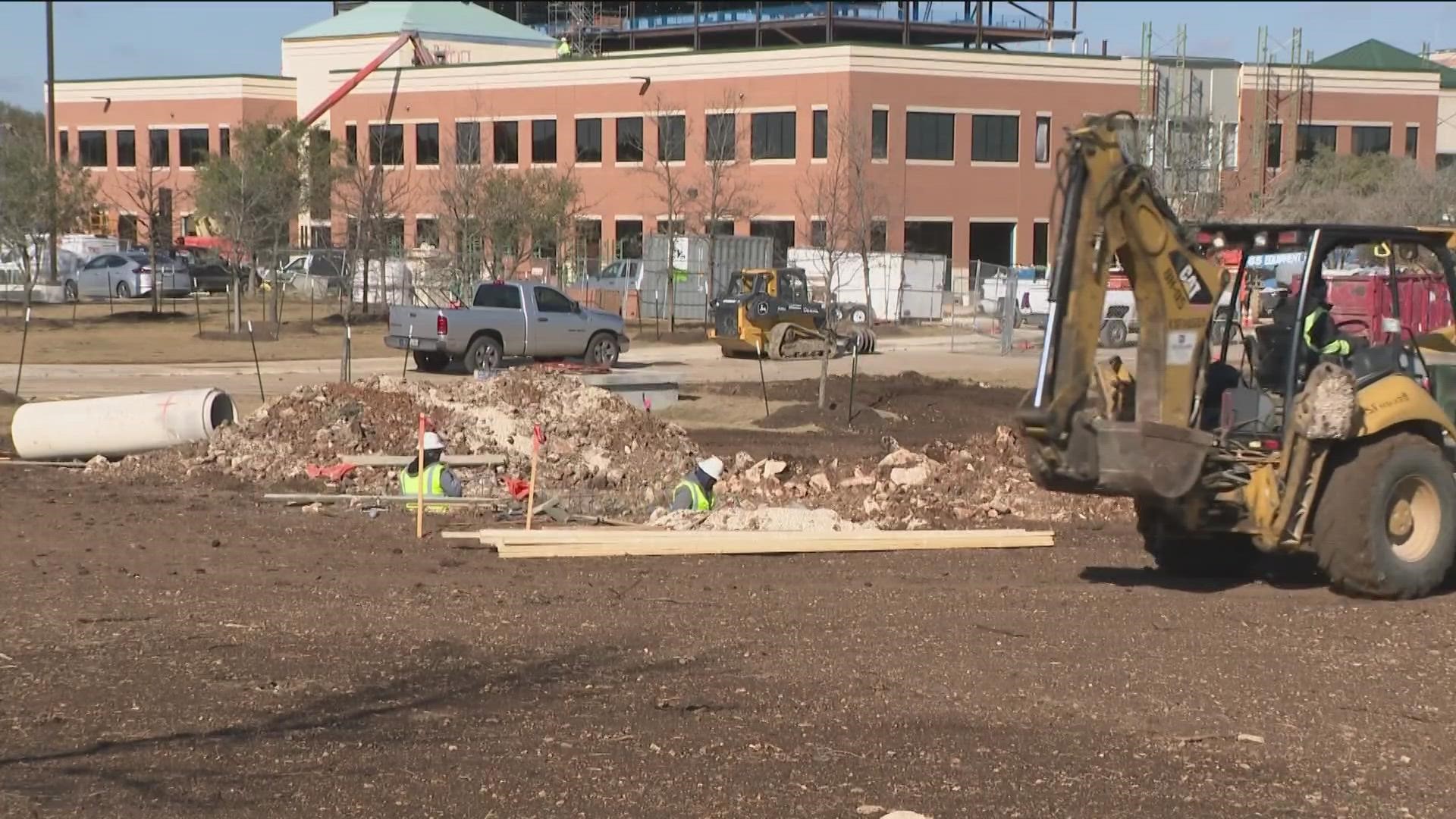AUSTIN, Texas — Hospitals are some of the most critical forms of infrastructure in any community.
Here in Central Texas, health care, along with many other industries seem to be booming, making way for new hospitals and billions of dollars worth of expansions.
However, even with all of the new development, a report from KaufmanHall shows 1 in 10 Texas Hospitals are at risk of closure and those in rural communities have a much larger threat.
“The biggest challenge is the workforce piece. And so that's the increased cost of labor. The shortages in labor are really creating access challenges for hospitals being able to keep services open and creating fiscal challenges as labor costs rise," said John Hawkins, president and CEO of the Texas Hospital Association.
Nurse shortages and burnout
Hawkins said the Texas Hospital Association is a statewide trade association for hospitals in Texas, representing more than 600 member hospitals.
He said nursing shortages are just one of the issues impacting hospitals.
“We had a nursing shortage before the pandemic. We were turning away about 15,000 qualified nursing students every year because we just didn't have the capacity in our institutions to train those folks," Hawkins said.
That very shortage is bringing on safety concerns for Central Texas nurses. In late January, nurses gathered outside of Ascension Seton’s offices in Austin, demanding safer working conditions.

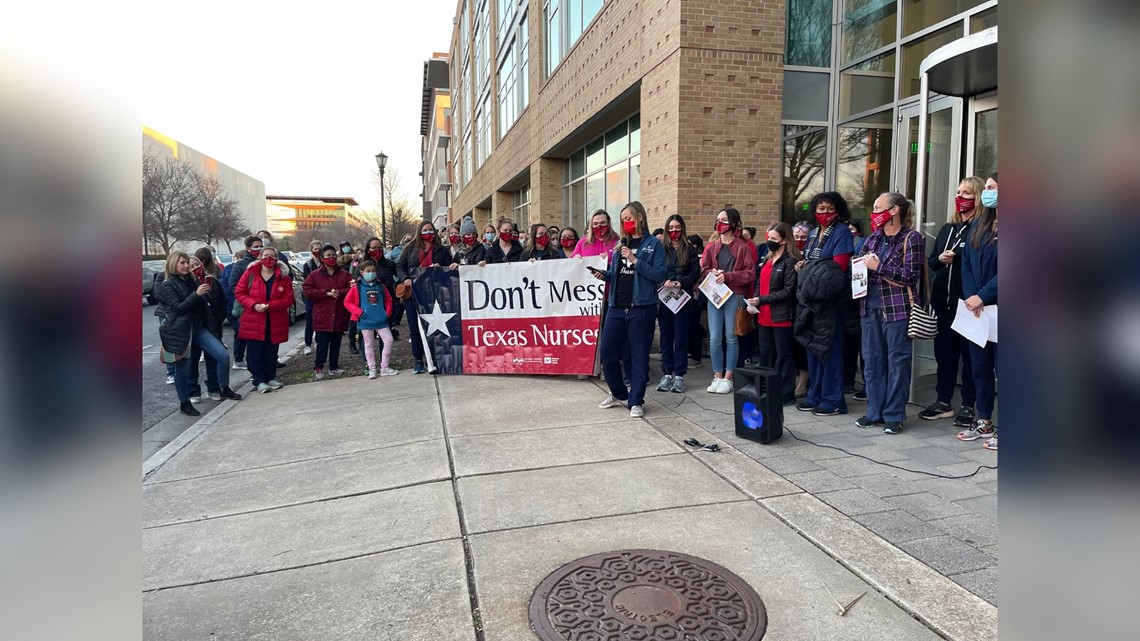
“We have a lot of morale fatigue from different areas. And I feel like right now we're focusing on that, being unable to get the point across that safe staffing needs to be mandated," said Kristine Kittelson, a nurse with Ascension Seton.
Kittelson said staffing shortages put patients at risk.
“We're having a really high nurse to patient ratio, and it's just leaving room for us to make errors that could be preventable and not giving our patients the care that they deserve," Kittelson said.
“We've seen the stories about burnout, about folks taking early retirement, just not being able to deal with that, that continued challenge from the pandemic," Hawkins said.
The KaufmanHall report states that almost half of all Texas hospitals are operating in the red, losing money, partly due to labor expenses.
In 2020, these expenses across Texas hospitals sat around $5 billion, higher than pre-pandemic costs. In 2021, they rose to $16.4 billion, with last year costing hospitals around $18.1 billion more collectively than what it cost before the COVID-19 pandemic.

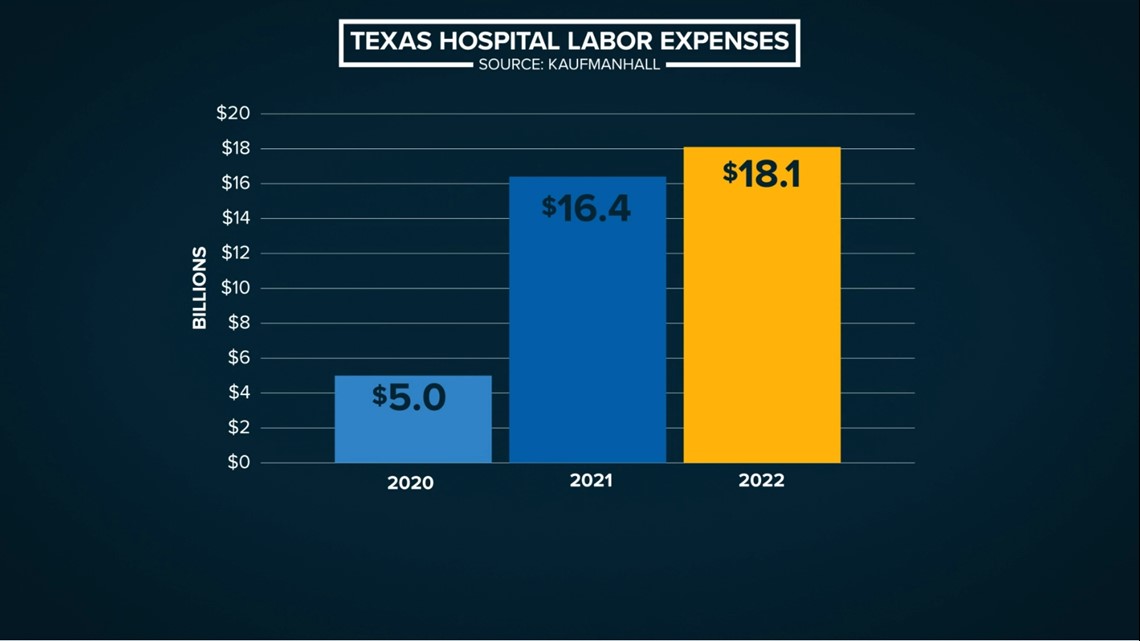
The threat to rural hospitals
“Expenses have just exploded and we tell people that our hospitals limped into the pandemic. They've survived, thankfully, but they're going to limp out of the pandemic," said John Henderson, president and CEO of the Texas Organization of Rural and Community Hospitals (TORCH).
Henderson said these problems and risks for closure are even worse in rural communities.
Rural hospitals have a 26% risk of closure or a 1 in 4 chance of having to shut down, making the threat to these hospitals much greater in communities that rely on them.
“It doesn't surprise me, actually. We view the report as affirmation of what, or confirmation of what our members have been feeling, which is increasing vulnerability and pressure on their survival," Henderson said.
KaufmanHall’s report attributes some of these issues in rural hospitals to operating margin concerns, total costs for supplies, declines in patient volumes and more. Henderson said they describe this as "death by a thousand papercuts" because it's not just one specific thing causing the entire issue.
“Texas unfortunately led the nation in the number of rural hospital closures before the pandemic. So we knew we had challenges in rural Texas before the pandemic. The pandemic has made that worse," Hawkins said.
Both said if hospitals have to close, the consequences could be deadly. It nearly was for Thorndale resident David Persons.
“Jennifer looked over at me. My wife, she was driving, thank goodness, and I wasn't breathing. I wasn't doing anything. I was just turning blue," Persons said.

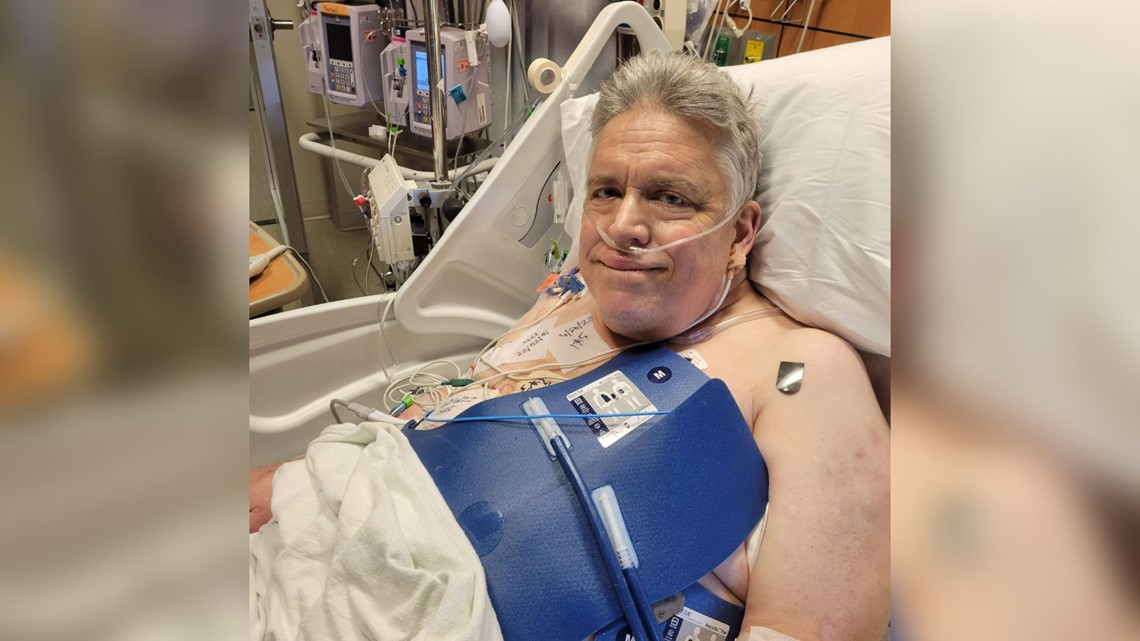
He was suffering from symptoms similar to a heart attack and only had minutes to get help. His wife, Jennifer, jumped into action.
“I would have been dead. They told me if it had taken more than 10, 15 minutes, no way," Persons said. “Apparently, it looked really bad for a while because they were talking about even if they saved me, I probably wasn't going to be much of, you know, have a brain function or anything.”
He noted smaller community and rural hospitals like Baylor Scott & White Medical Center in Taylor were his saving grace, so he wants them to thrive well into the future.
“What happens when my son has that heart attack in 40 or 50 years or whenever? Will the resources be there that were there to save me," Persons said.

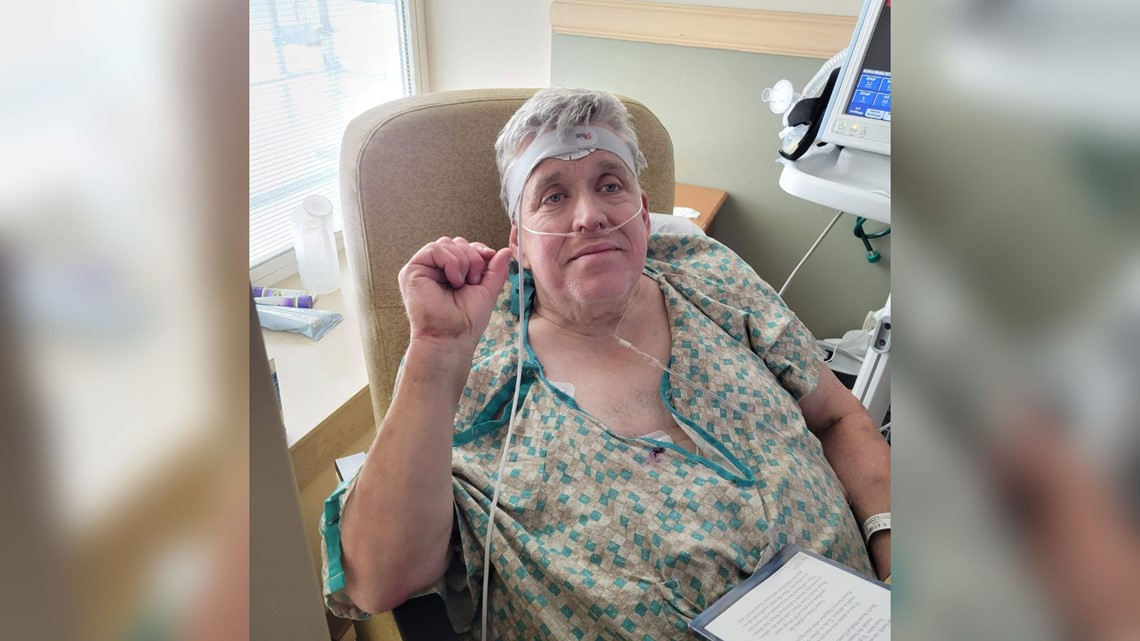
These hospitals are also critically important to the economies of communities around them.
“The hospital is usually one of the largest employers in those communities. And so that has a ripple effect for, you know, restaurants, other businesses, other vendors in that community as well," Hawkins said.
Help from the Legislature
For these reasons, Hawkins and hospital advocates are asking the Legislature for help. They say they lobby at the Capitol and have met with the governor in-person to highlight the need.

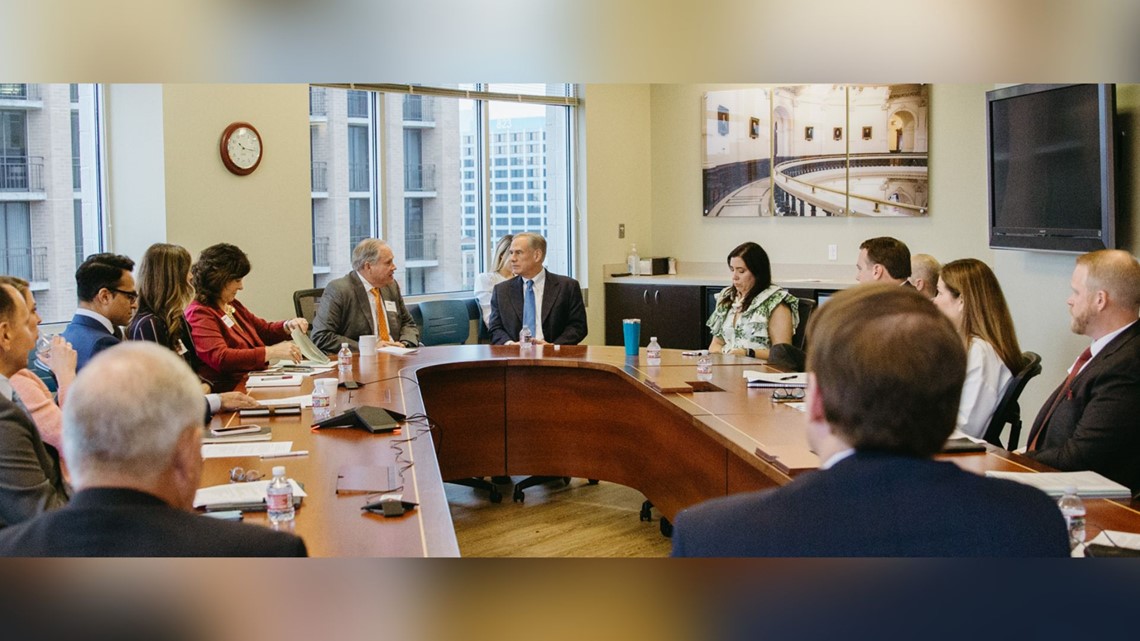
“The base bill in both the House and Senate have significant investments, additional investments in the workforce pipeline. And we hope to build on what's in that base bill going forward," Hawkins said.
Those bills are House Bill 901, sponsored by State Rep. Stephanie Klick, and Senate Bill 244, proposed by State Sent. Lois Kolkhorst.
Both bills focus on things like postsecondary education for nurses as well as loan repayment assistance and more.
“We’ll ask for a continuation of what they've already done. But then we're going to ask for more as it relates to workforce physician and nurse loan repayment programs to try to attract those professionals to live and work and serve in rural communities," Henderson said.
All saying, it’s now their mission to work closely with the legislature to prioritize the needs of all Texas hospitals.

